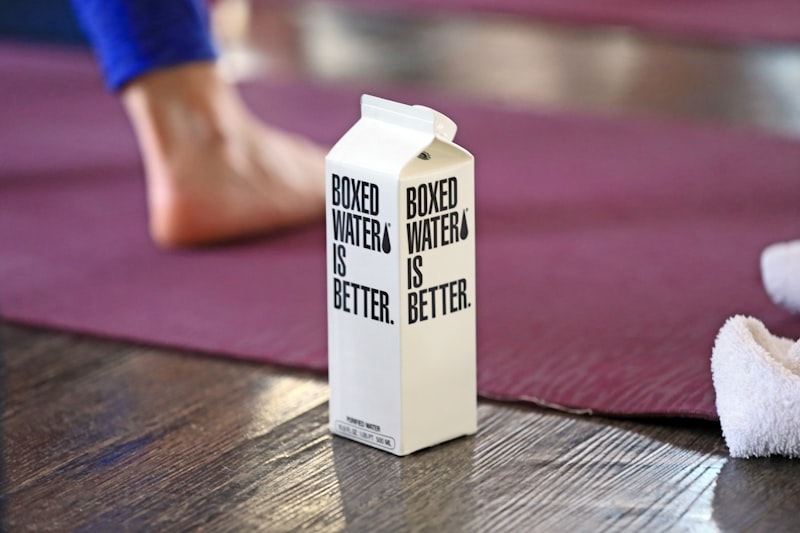How Does Dehydration Affect Your Body?
Imagine your body as a well-oiled machine. Water is like the lubricant that keeps everything running smoothly. Without it, things start to grind. Your blood thickens, making it harder for your heart to pump and circulate oxygen. This can leave you feeling dizzy or lightheaded. Ever stood up too quickly and felt like the room was spinning? That’s dehydration messing with your blood pressure.
But wait, it gets worse. Your kidneys, which are like your body’s natural filters, struggle when there’s not enough water. They can’t flush out waste as efficiently, which can lead to uncomfortable and potentially serious conditions, like kidney stones or urinary tract infections.
And let’s not forget about your skin. When you’re dehydrated, it loses its elasticity. If you pinch your skin and it takes a while to bounce back, that’s a clear sign you’re not getting enough fluids. Your skin also becomes more prone to irritation and might look dull or flaky.

In short, dehydration throws your body’s harmony off balance, causing a chain reaction of issues that affect everything from your heart to your skin and mind. So, next time you’re feeling off, it might just be time to grab a glass of water.
The Hidden Impact: How Dehydration Silently Alters Your Body’s Function
Water is crucial for nearly every process in your body. It helps with digestion, regulates your body temperature, and even cushions your joints. When you’re dehydrated, this machine starts to sputter. Your energy levels drop because your blood becomes thicker, making it harder for your heart to pump and for oxygen to reach your muscles. It’s like trying to run a marathon with a weight on your back – exhausting and ineffective.
But the impact goes deeper. Your brain, for instance, is about 75% water. When dehydration strikes, you might experience headaches or have trouble concentrating. It’s akin to trying to solve a puzzle with missing pieces – frustrating and ineffective. Dehydration can also mess with your kidneys, potentially leading to kidney stones or urinary tract infections, as these organs struggle to filter waste without adequate fluid.
Moreover, your skin, often the first to show signs of dehydration, can become dry and less elastic, which might make you look older than you feel. Think of your skin as a sponge that, when deprived of water, loses its ability to stay plump and resilient.
So, the next time you feel off, consider whether dehydration might be the culprit. Keeping hydrated isn’t just about quenching your thirst; it’s about ensuring every part of your body functions smoothly and efficiently.
From Fatigue to Fainting: The Surprising Ways Dehydration Affects Your Health
You might start with simple fatigue, feeling sluggish and drained as if you haven’t slept in days. This happens because your body’s vital fluids are running low, affecting everything from your energy levels to your concentration. It’s like trying to drive a car with a malfunctioning fuel gauge—you never quite know when you’re going to run out of steam.
But it doesn’t stop there. As dehydration worsens, you might experience dizziness or lightheadedness. Think of it as your body’s warning sign, signaling that it’s struggling to keep up with its hydration needs. This dizziness can escalate into fainting, a serious condition where your brain isn’t getting enough blood. It’s your body’s way of saying, “I need more water, pronto!”
And let’s not forget how dehydration messes with your physical performance. Imagine your muscles are like a sponge, which needs to stay moist to work efficiently. When you’re dehydrated, that sponge dries out, leading to cramps and reduced strength. It’s like trying to stretch a dry rubber band—it just doesn’t work as well.
In severe cases, dehydration can even affect your kidney function, turning a minor inconvenience into a serious health issue. So, next time you feel tired or dizzy, or if you’re pushing through a workout, remember that a simple glass of water could be the game-changer your body needs.
Why Staying Hydrated is Crucial: The Science Behind Dehydration’s Toll on Your Body
The science behind dehydration is fascinating. When you don’t drink enough water, your body struggles to maintain its balance. Your blood becomes thicker, making it harder for your heart to pump it through your veins. This can lead to symptoms like dizziness, headaches, and even impaired cognitive function. It’s like trying to work with a rusty tool; everything becomes less efficient.
Moreover, dehydration impacts your body’s ability to regulate temperature. Water helps sweat evaporate, cooling you down. Without enough hydration, you’re more likely to overheat and feel sluggish. Think of it like trying to cook with a pan that’s too hot without enough oil—you’re going to burn something.
Also, dehydration affects your kidneys, which are vital for filtering waste from your blood. When you’re low on fluids, your kidneys have to work harder, and this can lead to kidney stones or urinary tract infections. It’s akin to pushing a vacuum cleaner with a clogged filter—it’s not going to perform as well.
Finally, dehydration impairs your physical performance. Muscles need water to contract efficiently, and without it, you could experience cramps or fatigue. It’s like trying to lift weights with a weak grip; your strength is compromised.
So, keeping hydrated isn’t just about quenching your thirst—it’s about ensuring your body operates at its ultimate capacity.
The Domino Effect: How Dehydration Disrupts Multiple Systems in Your Body
First off, dehydration can hit your cardiovascular system like a wrecking ball. When you’re low on fluids, your blood volume decreases. This means your heart has to pump harder to get blood circulating, which can lead to increased heart rate and blood pressure. Imagine trying to run a race with a leaky water bottle; you’re not going to perform at your best.
Your digestive system isn’t spared either. Water is crucial for producing saliva and stomach acids that help break down food. Without enough water, you might experience constipation or digestive discomfort, like trying to drive a car with no oil—things just don’t run smoothly.
Your kidneys, the body’s natural filtration system, also suffer. They rely on adequate hydration to filter out toxins and waste. When dehydrated, they can become overwhelmed, potentially leading to kidney stones or even kidney failure. It’s like asking your vacuum to clean without turning on the power—it’s simply not going to work.
Moreover, dehydration can affect your brain function. Lack of water can lead to headaches, impaired concentration, and mood swings, making you feel like your brain is stuck in a foggy daydream.
So, staying hydrated isn’t just about quenching your thirst; it’s about keeping your body’s orchestra in tune and preventing a cascade of issues. Drink up and keep those systems running smoothly!
Dehydration and Your Brain: Understanding the Cognitive Consequences
Studies show that even mild dehydration can cause noticeable cognitive hiccups. Ever felt foggy or forgetful? It might be because your brain is running low on fluids. Dehydration has been linked to decreased concentration, slower reaction times, and impaired memory. Think of it as trying to run a car on an empty tank—your brain’s performance will definitely suffer.
Why does this happen? Water is crucial for various brain functions. It helps maintain the balance of neurotransmitters, which are the messengers that keep your brain’s communication system running smoothly. Without enough water, these neurotransmitters can’t do their job effectively, leading to sluggish mental performance.
Moreover, dehydration affects the brain’s ability to regulate mood. You might find yourself more irritable or anxious when you’re not drinking enough water. It’s like your brain’s emotional thermostat is out of whack. Staying hydrated helps keep your mood steady, making it easier to tackle daily challenges without the extra mental strain.

Breaking Down Dehydration: How Lack of Water Affects Your Muscles and Joints
Think of your muscles and joints as a well-oiled machine. When you’re properly hydrated, your muscles are like a sports car—smooth, responsive, and efficient. But when you’re dehydrated, it’s like driving that car without oil. Your muscles lose their ability to contract effectively, leading to cramps, stiffness, and reduced performance. It’s akin to trying to run a marathon with a flat tire; you’re just not going to get very far without some extra effort and discomfort.
Joints are no different. They rely on synovial fluid—a thick, slippery substance that keeps them moving smoothly. Dehydration causes this fluid to become thick and less effective, leading to increased friction and joint pain. Imagine trying to pivot on a rusty hinge; the resistance is frustrating and painful. That’s what happens to your joints when you’re not drinking enough water.
Moreover, dehydration can disrupt your body’s electrolyte balance. Electrolytes, like sodium and potassium, are crucial for muscle function. Without adequate hydration, this balance gets thrown off, causing your muscles to spasm or cramp unexpectedly. It’s like trying to play a game with rules that keep changing; it just doesn’t work well.
In short, keeping hydrated isn’t just about quenching your thirst; it’s essential for keeping your muscles and joints in top shape. So, next time you feel those telltale signs of dehydration, remember it’s more than just a dry mouth—it’s your body’s way of telling you to drink up and keep moving smoothly.
